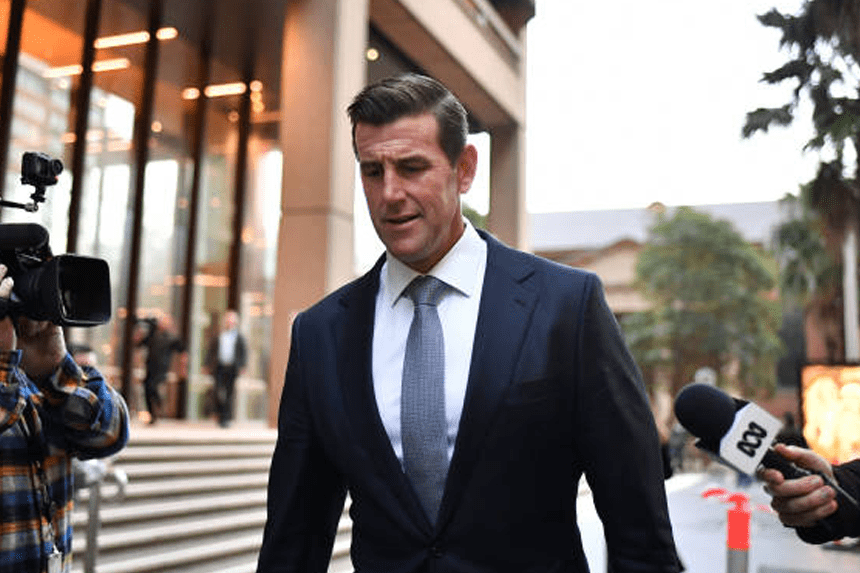The current decision at the Ben Roberts-Smith warfare crimes enchantment marks a pivotal second in Australian military and felony records. Ben Roberts-Smith, once celebrated as Australia’s most dwelling soldier, lost his appeal against a defamation judgment that found him accountable for war crimes for the duration of his deployment in Afghanistan. This case has attracted sizeable public attention because it questions the conduct of squaddies running in complex fight environments, and it raises broader problems approximately accountability, the position of the media, and the judicial procedure.
This article affords an in-depth explanation of the background, the appeal process, the courtroom’s ruling, and what the outcome means for Roberts-Smith, the Australian Defence Force (ADF), and the wider Australian network.
What Led to the Ben Roberts-Smith War Crimes Appeal?
The origin of the Ben Roberts-Smith battle crimes appeal lies in a series of investigative news articles published in 2018 by way of major Australian newspapers. These articles alleged that Roberts-Smith, during his service with the Special Air Service (SAS) in Afghanistan from 2009 to 2012, unlawfully killed four unarmed Afghan civilians and prisoners. These have been severe allegations that struck a harsh contrast along with his public photo as a conflict hero who was provided the Victoria Cross—Australia’s maximum military honour.
Roberts-Smith spoke back by suing the newspapers for defamation, claiming that the allegations were false and had destroyed his reputation. The trial became large, lasting over 120 days, and has been called “the trial of the century” in Australia because of its scale, fee, and the gravity of the accusations.
In June 2023, Federal Court Justice Antony Besanko ruled in favour of the newspapers. He found that the allegations were “extensively real,” confirming that Roberts-Smith had certainly murdered 4 unarmed Afghan guys and bullied fellow squaddies. The judgment additionally concluded that Roberts-Smith had lied to cover up his moves and threatened witnesses.
Following this ruling, Roberts-Smith’s prison team filed the Ben Roberts-Smith warfare crimes enchantment, arguing that the original decision had made legal errors. Central to the appeal became the declaration that the presumption of innocence is now longer adequately weighed, and that the proof offered did longer important threshold for civil instances that contain such intense allegations. The attraction additionally raised issues approximately alleged journalistic misconduct that, in keeping with Roberts-Smith’s team, might have compromised the fairness of the trial.
How Did the Federal Court Rule at the Appeal?
On a latest Friday, a panel of three Federal Court judges delivered a unanimous decision rejecting the Ben Roberts-Smith warfare crimes enchantment. They stated that the evidence turned into sufficiently clean and convincing to support the preliminary findings towards Roberts-Smith. The judges further cited that any mistakes inside the original judgment were minor and did not have an effect on the overall outcome.
Importantly, the court disregarded allegations that newshounds concerned within the case had acted improperly in a manner that could quantity to a miscarriage of justice. They rejected claims regarding a leaked telephone call between a journalist and a witness, concluding it did not undermine the proof’s credibility.
Additionally, the courtroom ordered Roberts-Smith to pay the newspapers’ felony costs, including an economic impact to the ruling. Read another article on the Italian PM Libya Suspect
What Has Been Ben Roberts-Smith’s Response?
Despite the great prison defeat, Roberts-Smith continues to claim his innocence. He has said publicly that he denies all allegations made towards him and regards the accusations as “egregious and spiteful.” His legal team has announced that they intend to appeal the decision to the High Court of Australia “right now,” signalling that the prison dispute will persist.
Roberts-Smith’s stance highlights the complicated nature of this situation, in which allegations of unlawful behavior conflict with a strong denial and ongoing felony challenges. The High Court enchantment could be carefully watched, as it will determine whether the case reaches its very last felony end or if new proof or felony arguments may be taken into consideration.
Why Is the Ben Roberts-Smith War Crimes Appeal Significant?
The Ben Roberts-Smith war crimes attraction is historically tremendous because it is the first time an Australian court has, without delay, addressed allegations of war crimes committed with the aid of individuals of its defense force. It checks the judicial device’s capability to research, adjudicate, and supply judgments on touchy subjects regarding national security and navy operations.
This case additionally underscores the tension between protecting individual reputations and making sure accountability in army contexts. For many Australians, Roberts-Smith’s tale changed into certainly one of heroism and sacrifice. The revelations challenged that narrative and raised uncomfortable questions about what occurs during wartime, specially in covert operations far from public view.
Furthermore, the case highlights the essential function of investigative journalism in uncovering truths that can in any other case stay hidden. The newspapers concerned defended their reporting as essential public interest journalism, arguing that the general public has a right to recognize misconduct through those in uniform.
What Are the Broader Implications for Australia?
The implications of the Ben Roberts-Smith struggle crimes appeal extend beyond the man or woman case. For the Australian Defence Force, this example serves as a reminder of the significance of transparency and responsibility. It may want to prompt reforms in how allegations of misconduct are investigated and addressed internally, as well as how veterans are supported.
For the legal community, this example illustrates the demanding situations of balancing the presumption of innocence with the want to keep humans accountable in civil trials. The criminal requirements implemented in defamation instances are unique from crook trials, and this example navigates the ones nuances carefully.
Finally, for the Australian public, this example reinforces the critical position that courts and the media play in keeping a machine of checks and balances. The choice emphasizes that even the most decorated individuals are not above scrutiny while serious allegations arise.
What Should You Watch for Next?
As Roberts-Smith prepares to take his case to the High Court, Australians and ointernational observershave to stay informed approximately the tendencies. The High Court’s decision will set crucial criminal precedents, potentially influencing how destiny struggle crimes and defamation instances are dealt with.
Staying engaged with dependable updates will help ensure a well-rounded understanding of this complex and evolving issue.
Conclusion
The Ben Roberts-Smith warfare crimes enchantment represents a landmark moment in Australia’s pursuit of justice and duty within its army ranks. The Federal Court’s rejection of the appeal upholds an extreme judgment that challenges previous perceptions of one of Australia’s maximum famous soldiers.
As this criminal saga continues in the High Court, the case will remain a focal point for debates on navy ethics, media freedom, and the rule of thumb of regulation.








